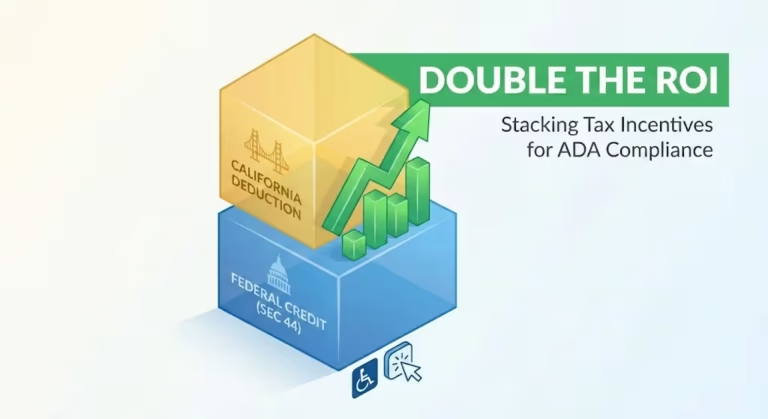SSL certificates are vital for securing online communication and protecting sensitive information. They play a crucial role in building trust with website visitors by ensuring a secure connection between the site and its users. By encrypting data such as personal information, customer details, and login credentials, SSL certificates offer protection against unauthorized access. This not only safeguards user identities but also helps in establishing the authenticity of the website or company. For example, organizations that handle customer information must use SSL certificates to uphold trust and security.
What is an SSL Certificate?
Different Types
SSL certificates come in various types, including standard SSL, domain SSL certificates, and unified communications certificates. Each type serves a specific purpose, offering different levels of security for websites.
An organization or an individual can opt for a single certificate to secure one domain or multiple domains with a wildcard certificate. For instance, if a company has multiple subdomains under its primary domain, it can use a wildcard certificate to secure all the subdomains with one certificate.
Choosing the Right Type
When selecting an SSL certificate type, it’s crucial to consider the specific needs of the website. If it’s an e-commerce site that collects sensitive information like credit card details, then opting for an Extended Validation (EV) SSL certificate would be prudent. On the other hand, if it’s a blog or informational website that doesn’t handle sensitive data but still requires encryption for user privacy and trustworthiness, then a Domain Validated (DV) SSL certificate may suffice.
For example:
- An online retail store dealing with customer transactions should prioritize obtaining an EV SSL certificate.
- A personal blog focused on sharing content and engaging with readers might find sufficient security through DV or OV (Organization Validated) certificates.
Benefits
The implementation of any form of SSL certification offers several benefits. Firstly, it provides assurance to visitors that their connection is secure by displaying the padlock symbol in the browser’s address bar. This not only builds trust but also helps prevent potential security breaches from intercepting sensitive information transmitted between users and websites.
Moreover:
- It improves search engine rankings as major search engines prioritize websites secured with HTTPS.
- It protects against phishing attacks by verifying the authenticity of websites.
- It ensures compliance with data protection regulations such as GDPR and CCPA.
Benefits of SSL Certificates for Business Websites

Domain Validated Certificates
Domain Validated (DV) certificates are the most basic type of SSL certificate, verifying only domain ownership. This means that when a website has a DV certificate, it shows visitors that the site’s domain is secured and verified. For example, if a customer visits an e-commerce website with a DV certificate, they can be assured that their connection to the site is secure.
These certificates are easy to obtain and provide essential encryption for online communication. A business website using a DV certificate can ensure that data transmitted between the user’s browser and the server remains private and integral.
Organization Validated Certificates
Organization Validated (OV) certificates go beyond just validating domain ownership; they also provide additional validation by verifying the organization’s details. When visitors see an OV certificate on a website, they know that not only is the domain secure but also that some level of organizational information has been verified.
For instance, an OV certificate may display details such as company name or location in its security information. This extra layer of validation adds credibility to websites by showing users that they are dealing with legitimate businesses rather than potentially malicious or fraudulent sites.
Extended Validation Certificates
The highest level of validation offered by SSL certificates comes from Extended Validation (EV) certificates. These certificates offer superior trust indicators because they display the organization’s name in green next to the URL in supported browsers’ address bars.
When customers visit websites with EV certificates, seeing this prominent visual cue assures them of both strong encryption and stringent verification processes undertaken by these businesses. As such, EV-certified websites often enjoy higher levels of trust from their visitors due to this visible proof of their authenticity and commitment to security.
How SSL Works
Protecting Sensitive Information
SSL certificates play a crucial role in safeguarding sensitive information, including login credentials, credit card details, and personal data. When a user enters such information on a website without an SSL certificate, it is susceptible to interception by hackers. With an SSL certificate in place, the data becomes encrypted, making it extremely difficult for cybercriminals to access or decipher.
This encryption process involves converting the information into a code that only the intended recipient can understand. For example, when a customer submits their credit card details during an online purchase from a website with an SSL certificate, the information gets transformed into complex code before being transmitted over the internet. This ensures that even if intercepted by unauthorized parties, it remains indecipherable and secure.
The utilization of SSL certificates not only protects valuable data but also instills confidence in users who are aware of potential security risks associated with sharing personal details online.
Favorable Search Engine Rankings
Websites equipped with SSL certificates receive favorable treatment from search engines like Google. As part of efforts to promote online security and privacy protection for users, search engines prioritize websites secured with SSL certificates in their search rankings. This means that when users conduct searches related to products or services offered by businesses with SSL-secured websites, those sites are more likely to appear higher in search results compared to non-secure ones.
For instance, if two similar e-commerce websites compete for visibility on Google’s search engine results page (SERP), but one has an SSL certificate while the other doesn’t, the former is likely to outrank its counterpart due to its enhanced security measures. This prioritization encourages website owners to invest in securing their platforms through obtaining valid SSL certificates as part of their overall digital marketing strategy.
Enhanced User Trust and Credibility
In addition to protecting sensitive data and boosting search engine rankings, SSL certificates significantly contribute towards enhancing user trust and credibility for business websites. When visitors see visual indicators such as padlocks or “https” in the URL bar signifying secure connections on a website they’re browsing—thanks to installed SSL certificates—they feel more at ease engaging with that site.
Moreover, customers are becoming increasingly conscious about online security practices due to heightened awareness about cybersecurity threats such as identity theft and financial frauds. Therefore, when businesses display visible signs of investing in robust security measures like implementing SSL encryption protocols via valid certificates on their websites—it fosters greater trust among visitors leading them towards completing transactions confidently.
Secure your business website today with Kha Creation's expert SSL Certificate implementation.
Steps to Implement an SSL Certificate
Browser Initiated Secure Connection
When a user visits a website with an SSL certificate, their browser sets up a secure connection with the web server. This is achieved using encryption algorithms, which ensure that all data exchanged between the server and the user’s browser remains private.
The process begins when the web server presents its SSL certificate to the user’s browser. This certificate acts as proof of identity for the website, assuring visitors that they are interacting with a legitimate and trusted entity.
Establishing this secure connection is crucial for protecting sensitive information such as login credentials, personal details, or financial transactions. The implementation of an SSL certificate enables websites to safeguard their users’ data from potential threats like hacking or eavesdropping.
Encryption for Data Security
Once the secure connection is established through the verification of the SSL certificate, all data transmitted between the website and its visitors becomes encrypted. This means that any information sent from the visitor’s device to the web server (and vice versa) becomes scrambled into unreadable code by complex mathematical algorithms.
For instance, if someone tries to intercept this encrypted data while it travels between devices and servers, they would only see jumbled characters instead of comprehensible information. As a result, even if unauthorized individuals manage to access this intercepted data, they wouldn’t be able to decipher it without possessing decryption keys.
This level of security significantly reduces vulnerabilities associated with cyber attacks because even if hackers gain access to intercepted encrypted data packets during transmission over networks or internet connections, decrypting them without authorization is practically infeasible due to strong encryption methods employed by SSL certificates.
Common SSL Certificate Errors and Troubleshooting

Validation Level
When deciding on an SSL certificate, it’s crucial to consider the level of validation required. There are three main types: Domain Validated (DV), Organization Validated (OV), and Extended Validation (EV). For basic websites, a DV certificate is usually sufficient. However, if your website handles sensitive information or conducts e-commerce transactions, an OV or EV certificate may be more appropriate.
It’s important to understand that each level offers different levels of trust and security. A higher validation level provides visitors with greater confidence in your website’s authenticity. For instance, an EV SSL certificate triggers the display of a company name in the address bar alongside the padlock icon, signifying a high level of assurance to users.
Encryption Strength
Another vital consideration when selecting an SSL certificate is encryption strength. Different SSL providers offer varying encryption strengths, typically measured by key length – 128-bit or 256-bit encryption. The higher the bit number, the stronger the encryption provided by the SSL certificate.
For example:
- Company A offers a Wildcard SSL Certificate with 256-bit encryption.
- Company B provides Wildcard SSL Certificates with both 128-bit and 256-bit encryptions at different price points.
By evaluating your website’s security requirements and understanding how various providers differ in terms of encryption strength offered within their SSL certificates, you can make an informed decision about which option best suits your needs.
Provider Comparison
Before making a decision on which SSL provider to go with, compare prices, customer support options, and additional features offered by various providers. Some things to consider include:
- Price variations for wildcard ssl certificates among different providers.
- Availability of round-the-clock customer support for technical assistance.
- Additional features such as warranty protection or site seals included in the package.
SSL Certificate Best Practices for Business Websites
Generate CSR
When obtaining an SSL certificate, the first step is to generate a Certificate Signing Request (CSR) from your web server. This involves creating a private key and a corresponding public key, which will be embedded in the CSR. The generated CSR is then submitted to the SSL certificate provider for validation and issuance of the SSL certificate.
It’s important to ensure that the information provided in the CSR matches your organization’s details and domain name, as any discrepancies can lead to delays or rejections during the validation process. Once you’ve obtained the CSR, submit it to your chosen SSL certificate provider for further processing.
Complete Validation Process
After submitting the CSR, completing the validation process required by the SSL certificate provider is crucial before receiving your SSL certificate. This typically involves confirming domain ownership or providing organizational details such as business registration documents. Some providers may offer different validation methods like email verification, DNS record modification, or file-based authentication.
By successfully completing this validation process, you demonstrate that you have control over your website’s domain and verify your organization’s identity. It ensures that only authorized entities receive valid SSL certificates for their websites, contributing significantly to enhancing cybersecurity strategies.
Install Issued Certificate
Upon receiving the issued SSL certificate, installing it on your web server promptly is essential to secure data transmissions between clients and servers. Follow precise instructions provided by either your server software documentation or hosting provider support on how to install an SSL/TLS certificate correctly.
The installation process generally involves uploading specific files containing cryptographic keys onto your server and configuring them within its settings or control panel interface. After successful installation, visitors accessing your website will see a padlock icon in their browser’s address bar alongside “https,” indicating a secured connection.
SSL and E-commerce Websites
Expiration Date Tracking
Website owners should always keep track of their SSL certificate’s expiration date. This is crucial for ensuring uninterrupted security for their e-commerce websites. Failure to renew the certificate on time can lead to potential downtime and loss of trust from visitors.
It is essential to be proactive in monitoring the validity period of your SSL certificate. By doing so, website owners can avoid any disruptions in the secure connection between their web server and visitors’ web browsers. The expiration date serves as a critical checkpoint that necessitates timely action to maintain a safe online environment for conducting transactions.
Renewal Before Expiry
Renewing the SSL certificate before it expires is imperative for maintaining continuous protection for e-commerce websites. Letting an SSL certificate expire can result in warning messages being displayed by web browsers, indicating that the site may not be secure. This can deter visitors from proceeding with online transactions due to concerns about data encryption and privacy.
To prevent such issues, website owners must prioritize renewing their SSL certificates well before they reach their expiration dates. Proactive renewal also demonstrates a commitment to safeguarding customers’ sensitive information, contributing to enhanced trust and confidence among online shoppers.
Automatic Renewal Options Considering setting up automatic renewal options provided by SSL certificate providers is highly recommended for hassle-free management. With this feature enabled, website owners can ensure that their SSL certificates are consistently updated without manual intervention or oversight.
SSL and Mobile Compatibility

Importance of SSL Certificates
SSL certificates play a crucial role in securing websites and protecting sensitive information online. They are essential for establishing a secure connection between the web server and the user’s browser, ensuring that data transmitted between them remains encrypted and protected from unauthorized access. Choosing the right type of SSL certificate, such as Extended Validation (EV), Organization Validated (OV), or Domain Validated (DV), is vital to meet specific security needs.
Implementing an SSL certificate on a website not only enhances user trust but also improves search engine rankings. When visitors see the familiar padlock icon in their web browser’s address bar, they feel more confident about sharing personal information or making transactions on the site. Moreover, search engines like Google prioritize websites with secure connections, potentially boosting their visibility in search results.
Mobile Compatibility and SSL
With an increasing number of users accessing websites through mobile devices, ensuring mobile compatibility is crucial when implementing SSL certificates. Websites that are not optimized for mobile viewing may encounter compatibility issues.
Some older mobile operating systems or browsers may have limitations regarding support for certain types of SSL/TLS protocols or cryptographic algorithms used during the SSL handshake process. This can result in potential security vulnerabilities if proper precautions are not taken during implementation.
To ensure seamless mobile compatibility, website owners should consider obtaining SSL certificates from trusted Certificate Authorities (CAs) that are widely recognized by major web browsers across various platforms and devices. It’s important to verify whether the chosen SSL certificate is compatible with popular mobile browsers to provide a consistent experience for all users regardless of their device.
Conclusion
In conclusion, implementing an SSL certificate is crucial for ensuring the security and trustworthiness of a business website. By encrypting data and providing authentication, SSL certificates not only protect sensitive information but also enhance customer confidence in the website. Following best practices and addressing common errors can further optimize the SSL implementation, leading to a seamless and secure online experience for users.
As cyber threats continue to evolve, staying proactive in maintaining a secure online environment is paramount. Business owners should prioritize regular SSL certificate maintenance and stay informed about emerging best practices to safeguard their websites and customer data effectively.
Upgrade your website security with Kha Creation's specialized SSL Certificate setup - connect with us for comprehensive protection!


